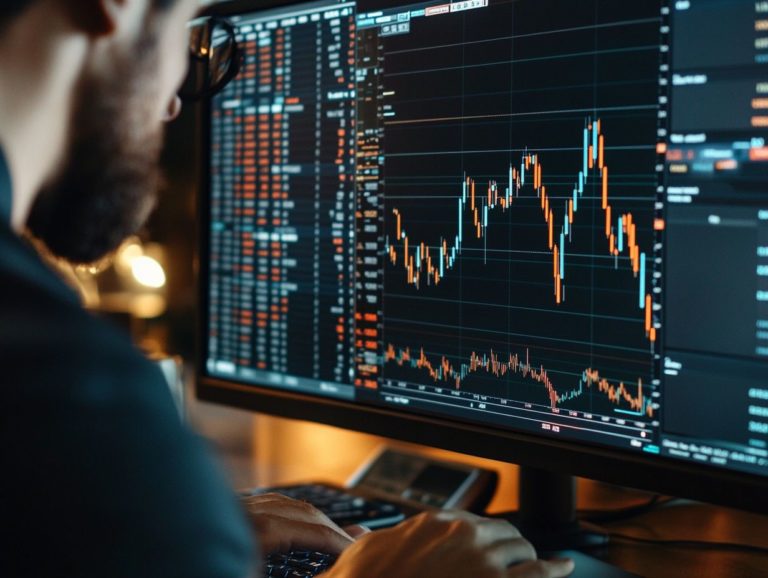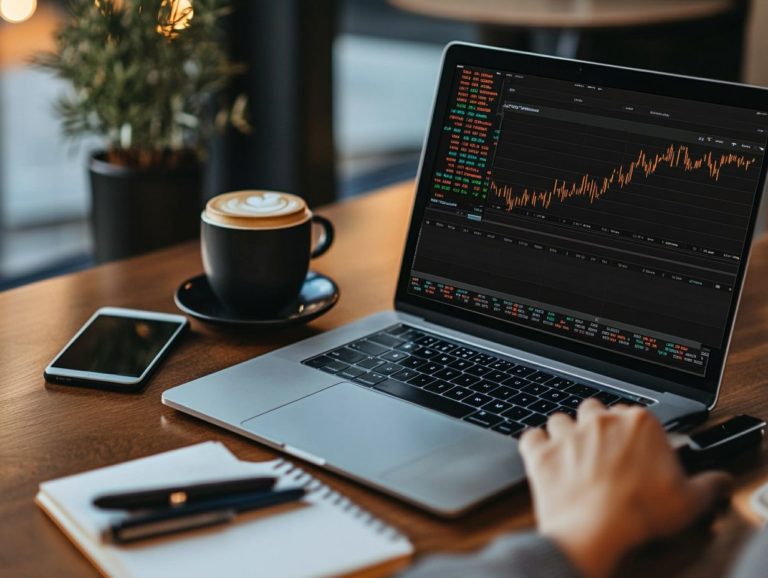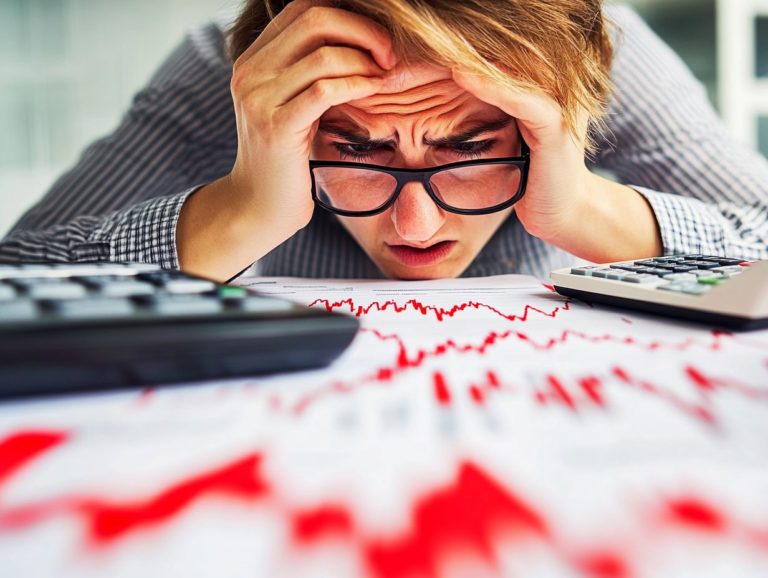What is the Role of Market Makers?
Market makers are essential players in the financial ecosystem. They provide the liquidity and stability that markets rely on. This overview will give you a clear understanding of their definition, operational strategies, and the critical functions they serve in stabilizing prices and enhancing trading efficiency.
You ll discover how market makers compare to other market participants, the regulations that govern their activities, and the challenges they face, including criticisms and potential conflicts of interest.
Jump in and discover the fascinating world of market makers and their significant influence on trading dynamics.
Contents
Key Takeaways:
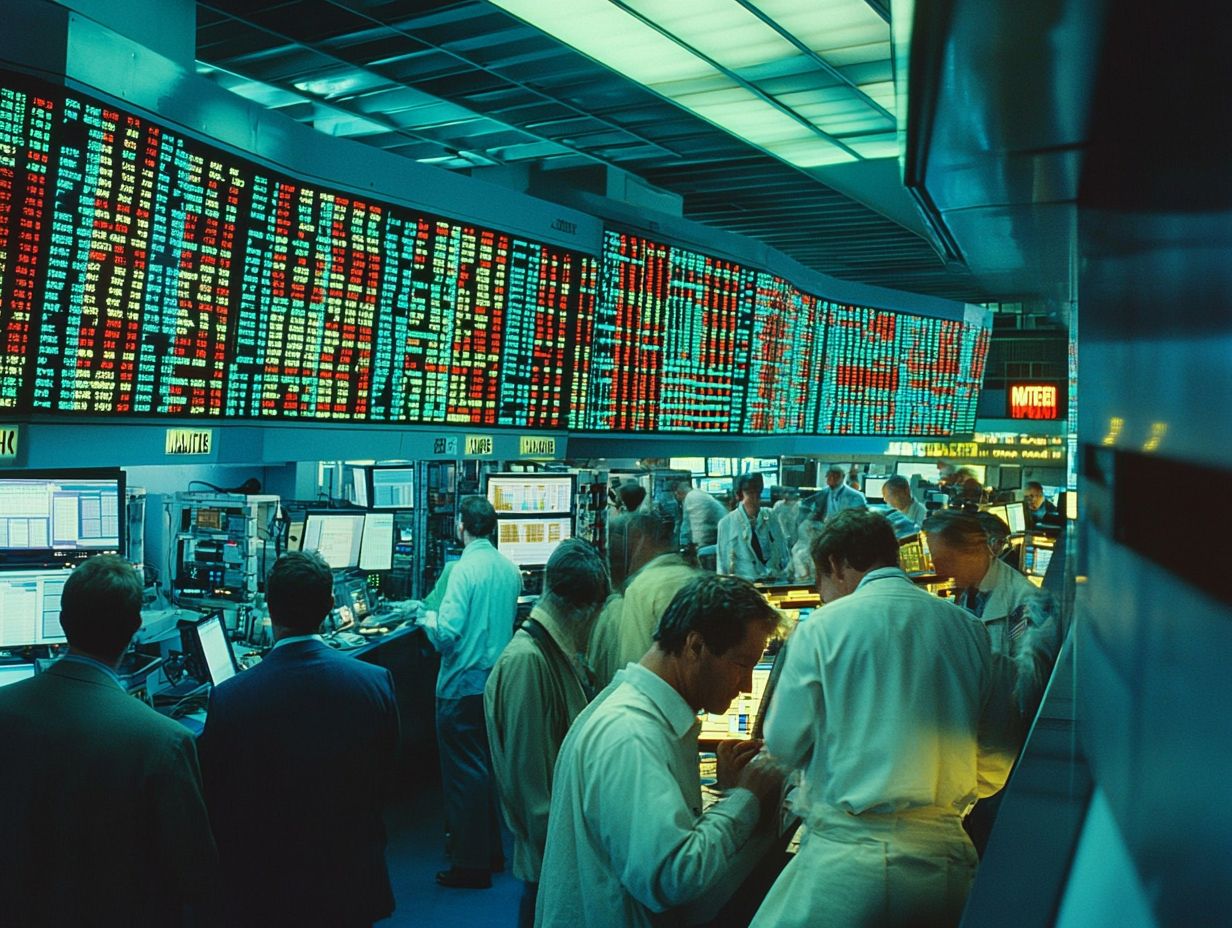
- Market makers play a crucial role in ensuring the smooth functioning of financial markets by providing liquidity and stabilizing prices.
- They use various strategies such as bid-ask spreads (the difference between the price to buy and the price to sell) and hedging to balance their risk and maintain an orderly market.
- Regulations and oversight are in place to prevent potential conflicts of interest and ensure fair market practices by market makers.
Understanding Market Makers
Market makers are essential players in the financial landscape. They serve as liquidity providers who facilitate trade execution through their constant supply of buy and sell quotes.
By maintaining market liquidity and stabilizing prices, they effectively narrow the bid-ask spread. This promotes efficient capital allocation among all participants.
In essence, market makers are the backbone of a smoothly functioning market, even in times of volatility. Ultimately, they benefit the entire investment community.
Definition and Function
A market maker acts as your financial intermediary, offering liquidity in the market by continually quoting prices at which they re prepared to buy or sell financial instruments.
By skillfully managing order flow, market makers facilitate smooth transactions. This ensures your trades can be executed without significant delays.
They serve as essential liquidity providers, bridging the gap between buyers and sellers. This ultimately enhances the efficiency of the market you re navigating.
The bid-ask spread is a crucial aspect of their operations. It reflects the market s supply and demand and compensates them for the risk associated with holding assets.
These functions are vital for improving trade execution. They allow you to enter or exit positions quickly and with minimal price fluctuations, all while helping to maintain stability in the financial markets.
How Market Makers Operate
Market makers use advanced algorithms and technology to enhance operations. This ensures swift order execution and efficient management of order flow.
By leveraging these sophisticated tools, they create a seamless trading environment that benefits all involved.
Market Making Strategies
Market making strategies encompass a variety of techniques and algorithms specifically crafted to optimize trade execution, manage volatility risk, and enhance price improvement for you as a trader or investor.
These approaches empower market makers to navigate the intricate landscape of financial markets. By employing high-frequency trading methods, they can swiftly respond to price movements and seize small profits from numerous trades throughout the day.
This nimbleness enables them to provide essential liquidity while maintaining tight bid-ask spreads, a critical factor for market efficiency.
Market makers utilize sophisticated risk management systems to analyze real-time data and adjust their strategies accordingly. This ensures they remain competitive.
Their capacity to absorb supply and demand fluctuations not only benefits their own trading positions but also cultivates a more stable trading environment for all market participants, including you.
The Importance of Market Makers
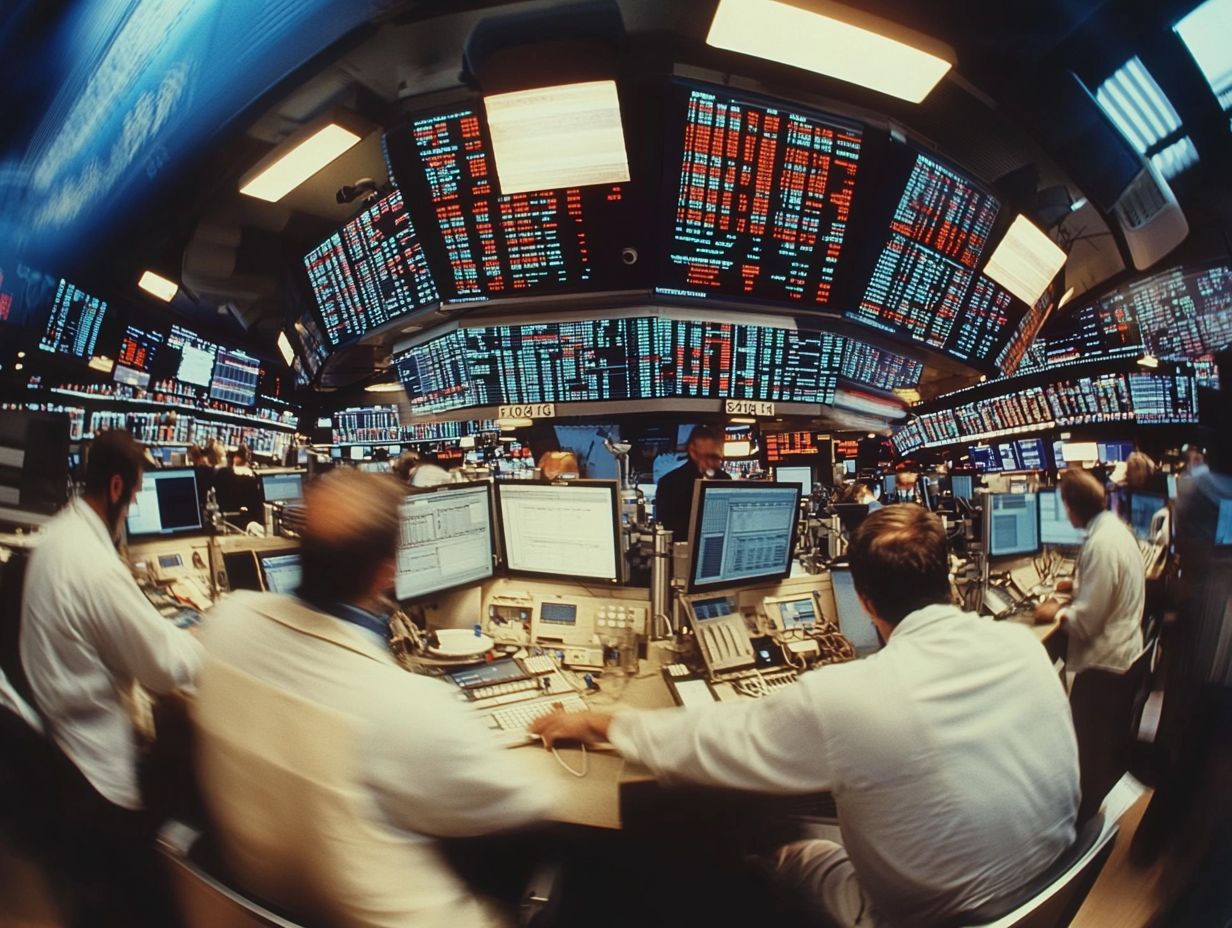
Market makers play a crucial role in the financial markets. They serve as the backbone of market stability by providing the liquidity necessary for efficient trade execution and effective capital allocation among various participants.
They make it easy for buyers and sellers to connect, enhancing the overall functionality of the market.
Stabilizing the Market
Market makers are pivotal in stabilizing the market. They skillfully absorb excess volatility and create a consistent trading environment for everyone involved.
This stability is achieved through mechanisms like liquidity provision. Market makers constantly offer to buy and sell assets, which narrows the bid-ask spread (the difference between the buying and selling prices). This enables you to execute transactions promptly, minimizing the impact of sudden market fluctuations.
Consider the 2020 market crash triggered by the COVID-19 pandemic. During that tumultuous period, market makers were essential in maintaining order. Their presence ensured smoother trading operations, curbing panic selling and allowing prices to reflect true market value rather than erratic spikes driven by fear.
This kind of stability fosters confidence among investors and contributes to the overall health of financial markets.
Providing Liquidity
One of the primary roles of market makers is to provide liquidity, which means ensuring that your buy and sell orders can be matched quickly. This is essential for the efficient functioning of financial markets.
By actively facilitating transactions, they create a seamless trading experience for you. This allows for smooth entry and exit from positions without significant delays.
When market liquidity is high, you’ll find that executing your strategies becomes much easier, minimizing slippage (the difference between expected and actual transaction prices) and maximizing potential returns.
A liquid market often appears more attractive, which can indirectly enhance pricing stability and overall market sentiment.
Market Makers vs. Other Players
Understanding the distinctions between market makers and other participants in the financial markets, including brokers and dealers, is essential. This knowledge helps you comprehend the complexities of capital allocation and market dynamics.
By grasping these differences, you can gain valuable insights into how the market operates and the roles each player contributes to the overall financial ecosystem.
Comparison to Brokers and Dealers
Market makers set themselves apart from brokers and dealers in how they facilitate transactions. Unlike brokers, who connect buyers and sellers without holding any securities, market makers actively provide liquidity to the market.
Dealers engage in trading securities on their own behalf, assuming the risk of holding inventory. This distinction has significant implications for capital allocation. Market makers enhance transaction efficiency by ensuring trades can be executed smoothly, even during volatile market conditions.
By continuously quoting buy and sell prices, market makers help create tighter spreads, benefiting traders looking to minimize costs. Understanding these roles is crucial for navigating the financial landscape effectively.
Market Maker Regulations
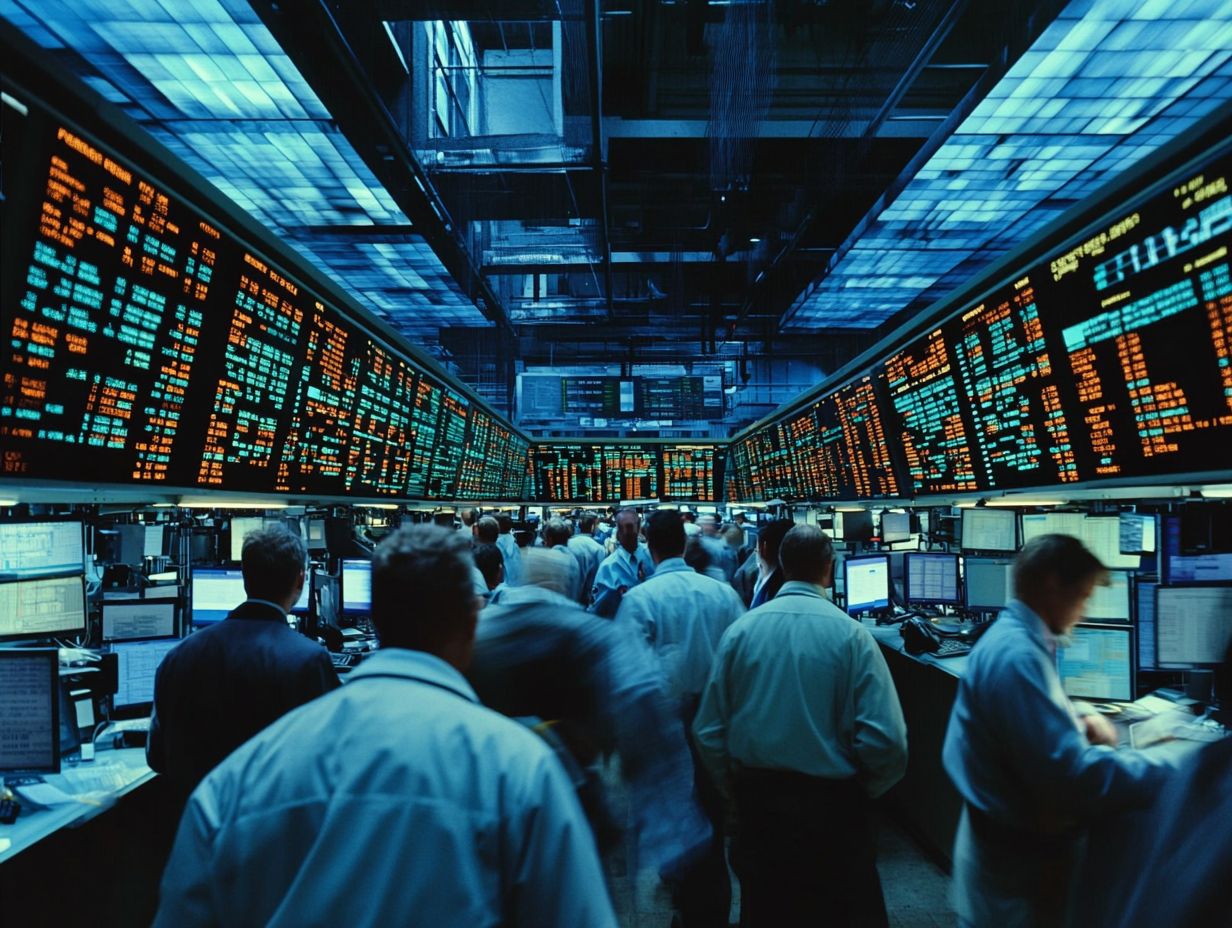
Market maker regulations set forth by esteemed entities like the Securities and Exchange Commission (SEC) and the Financial Industry Regulatory Authority (FINRA) are vital for upholding fairness and transparency within financial markets.
These regulations are foundational to ensuring trust and integrity in the complex world of finance. Understanding market makers can give you a crucial edge in today s fast-paced financial world.
Regulatory Requirements and Oversight
Market makers face a maze of regulatory requirements and oversight from organizations like FINRA and the SEC. They must ensure compliance with established market standards.
These regulatory frameworks impose capital requirements. You must maintain sufficient net capital to support your trading activities and absorb potential losses. You also face stringent reporting obligations, which necessitate regular disclosures of your trading practices, financial health, and order executions. This transparency allows regulators to monitor activities effectively and promotes accountability within the market.
By adhering to these compliance measures, you play a crucial role in fostering a more stable market environment. This stability bolsters investor confidence and ensures fair access for all. The overall implications of these requirements encourage ethical trading practices, mitigate the risks of market manipulation, and create a level playing field for every participant.
Challenges and Controversies
Despite their vital importance, market makers navigate a landscape filled with challenges and controversies. They often contend with potential conflicts of interest and face scrutiny regarding their influence within financial markets.
Criticism and Potential Conflicts of Interest
Market makers often find themselves under scrutiny due to potential conflicts of interest, especially when their trading practices threaten market efficiency and fairness.
Consider this: a market maker might prioritize their own trading positions over those of retail investors. This creates situations where they could manipulate prices or widen spreads to boost their own profits. Such actions impact not just individual investors; they can also undermine trust in the entire financial system.
When a market maker holds substantial positions on both sides of a trade, the risk of exploiting non-public information becomes a genuine concern. This raises ethical questions about transparency.
As these issues come to light, regulatory bodies may step in. They can impose stricter rules to enhance oversight and ensure that market makers operate within a framework that preserves the integrity of financial markets.
Frequently Asked Questions
What is the Role of Market Makers?
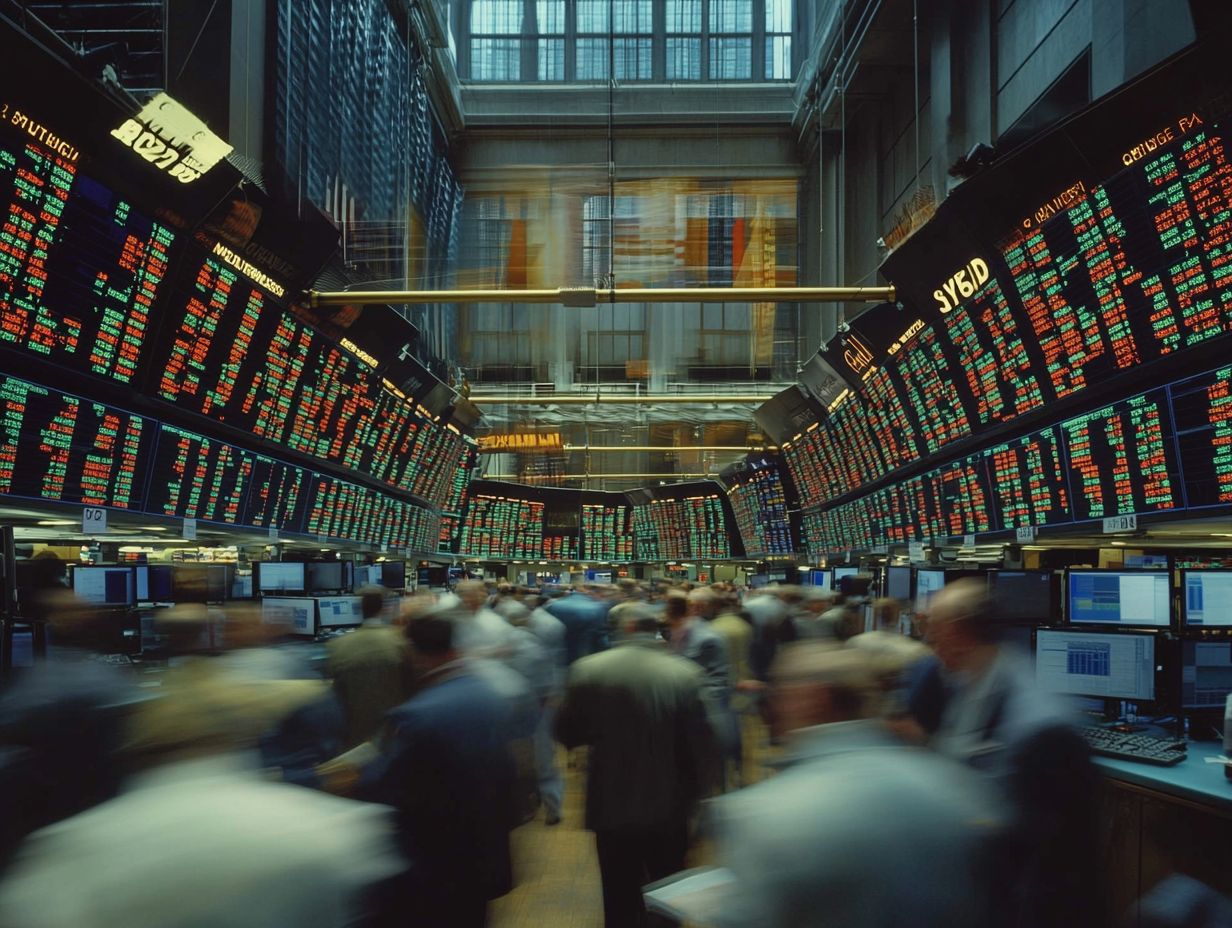
Market makers are individuals or firms that ensure the smooth functioning of financial markets by buying and selling securities to provide liquidity.
How do Market Makers make money?
Market makers make money by buying securities at a lower price and selling them at a higher price, profiting from the difference known as the bid-ask spread (the gap between the buy and sell price).
Why are Market Makers important?
Market makers are important because they provide liquidity to financial markets, making it easier for investors to buy and sell securities while keeping prices stable.
What type of securities do Market Makers trade?
Market makers primarily trade in stocks, bonds, options, and other financial instruments, although their role may vary depending on the market they operate in.
Do Market Makers always buy and sell securities?
No, market makers do not always buy and sell securities. They may also hold a certain amount of securities in their portfolio to provide liquidity and stabilize prices.
How are Market Makers regulated?
Market makers are regulated by financial authorities, such as the Securities and Exchange Commission (SEC) in the United States. This ensures fair and ethical practices in the financial markets.

